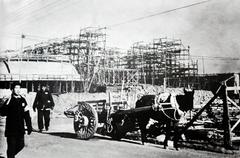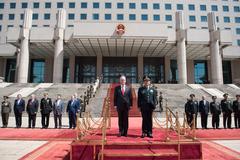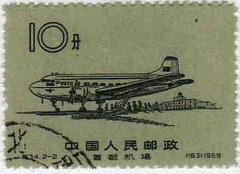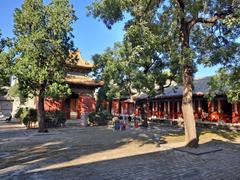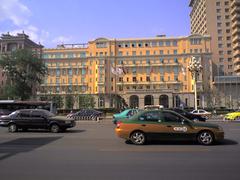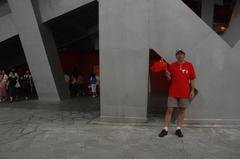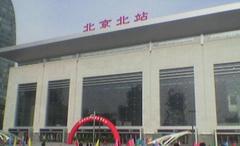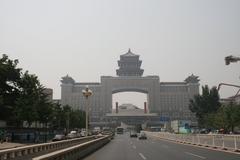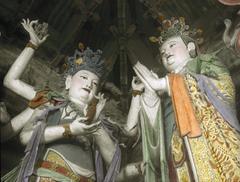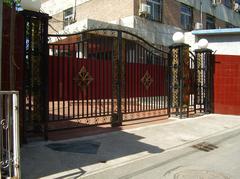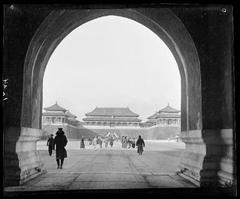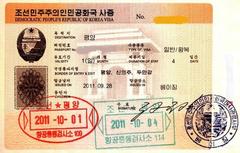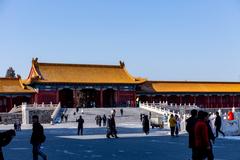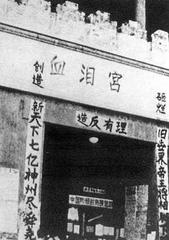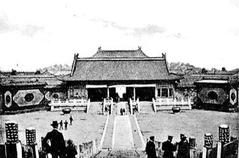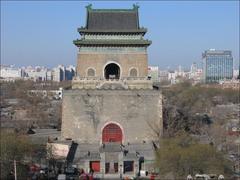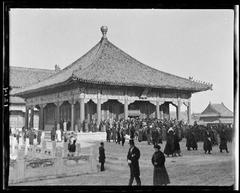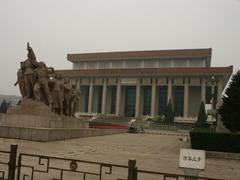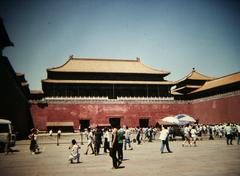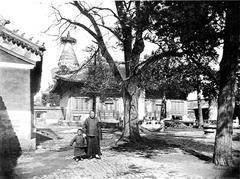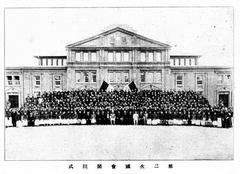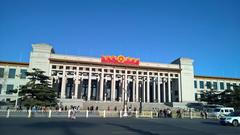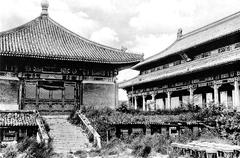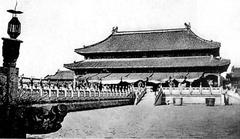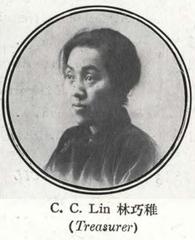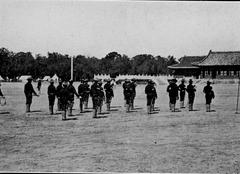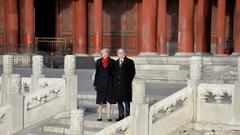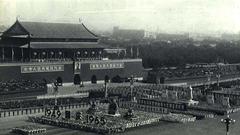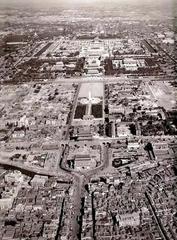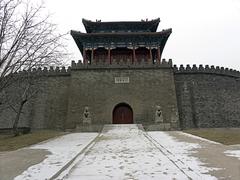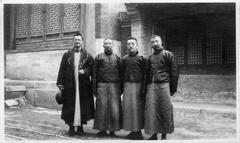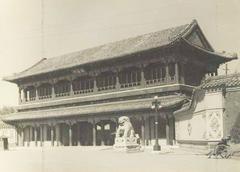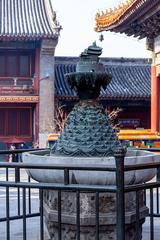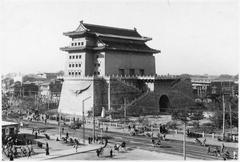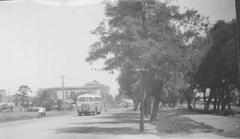Embassy Of The State Of Palestine In China
Embassy of the State of Palestine in Beijing: Visiting Hours, Cultural Significance, and Practical Guide
Date: 03/07/2025
Introduction
The Embassy of the State of Palestine in Beijing stands as a testament to the enduring and multifaceted relationship between Palestine and China. Since the mid-20th century, the embassy has evolved from a symbol of early diplomatic recognition to a vibrant center for cultural exchange, mediation, and consular services. This comprehensive guide covers the embassy’s historical background, current diplomatic significance, visiting hours, appointment procedures, and practical tips for travelers and researchers alike. Whether you seek consular support, wish to immerse yourself in Palestinian culture, or are simply curious about Sino-Palestinian relations, this article provides authoritative, up-to-date information to enhance your experience.
Table of Contents
- Historical Foundations of Sino-Palestinian Relations
- Evolution of Diplomatic Ties
- The Embassy’s Role in Contemporary Diplomacy
- Cultural and Economic Engagement
- Visitor Information: Hours, Appointments, and Services
- Travel Tips and Accessibility
- Nearby Attractions
- Frequently Asked Questions (FAQ)
- Conclusion
- Sources
Historical Foundations of Sino-Palestinian Relations
Early Perspectives and Shifting Alliances
Before 1949, China’s stance on the Middle East reflected global influences and sympathy for the Jewish plight, shaped by parallels with its own history of hardship. With the establishment of the People’s Republic of China (PRC), Chinese foreign policy shifted significantly. The PRC gradually moved from initial recognition of Israel to strong support for Arab states and the Palestinian cause, particularly under Mao Zedong and Premier Zhou Enlai. The Bandung Conference of 1955 marked China’s early advocacy for Palestinian rights on the world stage, laying the groundwork for decades of solidarity (mecouncil.org).
Evolution of Diplomatic Ties
Formal Recognition and Diplomatic Expansion
- 1965: China became the first non-Arab nation to recognize the Palestinian Liberation Organization (PLO), a move that signaled deepening engagement with the Palestinian cause.
- 1974: The PLO’s office in Beijing was upgraded to embassy status, cementing diplomatic ties.
- 1970s–1980s: Amid Cold War dynamics, China’s support for Palestine was visible in international forums, including the UN, though practical assistance was measured as China opened relations with Israel in subsequent years.
- 1990–2008: Diplomatic missions were further institutionalized, with China establishing an office in Gaza (later relocated to Ramallah), reinforcing the bilateral relationship at both governmental and people-to-people levels (thediplomat.com).
The Embassy’s Role in Contemporary Diplomacy
Symbolic and Practical Functions
Located in Beijing’s dynamic Chaoyang district, the Embassy of the State of Palestine is more than a diplomatic outpost. It serves as:
- A platform for high-level bilateral visits—including those by Yasser Arafat and Mahmoud Abbas.
- The site of major diplomatic milestones, such as the 2024 Beijing Declaration, which brought together 14 Palestinian factions in pursuit of national unity.
- A hub for cultural diplomacy, with events designed to promote Palestinian heritage and facilitate dialogue between Chinese and Palestinian societies.
China’s growing mediation in Middle Eastern affairs is underscored by its support for reconciliation efforts and ongoing economic and cultural cooperation (Palestinian Ministry of Foreign Affairs; China Ministry of Foreign Affairs).
Cultural and Economic Engagement
Promoting Palestinian Heritage
The embassy regularly organizes:
- Cultural festivals and National Day celebrations featuring Palestinian art, music, and cuisine.
- Exhibitions and lectures in collaboration with Chinese institutions.
- Educational outreach and academic partnerships, supporting language study and research exchanges (thefreelibrary.com).
Economic Cooperation
While economic ties have developed cautiously, ongoing discussions about free trade and bilateral investment reflect a growing emphasis on economic partnership, complementing the robust cultural and diplomatic relationship.
Visitor Information: Hours, Appointments, and Services
Location and Contact
- District: Sanlitun, Chaoyang, Beijing (precise address available on official embassy sources)
- Telephone and Email: Provided on official embassy directories; use for appointments and inquiries.
Visiting Hours
- Open: Monday to Friday, 9:00 AM – 5:00 PM
- Closed: Chinese and Palestinian public holidays (including Ramadan and Eid)
- Appointments: Strongly recommended for all consular services; schedule via phone or email.
Services Provided
- Passport issuance and renewal
- Visa services and document legalization
- Legal and emergency support for Palestinian nationals
- Information on cultural events and bilateral programs
Travel Tips and Accessibility
Getting There
- Public Transport: Subway stations such as Liangmaqiao and Tuanjiehu (Line 10) are nearby; taxis are convenient for last-mile travel (travelchinaguide.com).
- Parking: Limited; public transport is advised.
Entry Protocols
- Identification: Bring a valid passport or Chinese residence permit.
- Security: Bag checks and device screenings are standard; photography is prohibited without permission.
- Dress Code: Business or smart-casual attire; conservative dress is recommended.
Accessibility
- The embassy is generally accessible to visitors with mobility needs; contact staff in advance for specific accommodations.
Nearby Attractions
The embassy’s central location offers easy access to:
- Sanlitun Bar Street and Taikoo Li shopping complex
- Historical sites including the Forbidden City, Tiananmen Square, and the Temple of Heaven
- A variety of international restaurants and cultural venues, ideal for combining diplomatic visits with sightseeing (travelchinaguide.com).
Frequently Asked Questions (FAQ)
Q: What are the embassy’s visiting hours?
A: Monday to Friday, 9:00 AM – 5:00 PM, excluding public holidays.
Q: Do I need an appointment?
A: Yes, especially for consular services and official matters. Walk-ins may not be accommodated.
Q: Are there entry fees or tickets?
A: No entry fee is required. Some events may require advance registration or invitation.
Q: Is the embassy accessible for people with disabilities?
A: Generally yes, but contact the embassy in advance for specific arrangements.
Q: Can I take photographs inside?
A: Only with explicit permission; some areas prohibit photography.
Conclusion
The Embassy of the State of Palestine in Beijing embodies a rich legacy of diplomatic partnership, cultural exchange, and community support. Its role in fostering Sino-Palestinian relations is matched by its commitment to public engagement and heritage promotion. For visitors, a well-prepared visit—respecting security protocols, observing cultural etiquette, and staying informed through official channels—ensures a meaningful and respectful experience. Stay updated via the Palestinian Ministry of Foreign Affairs and related resources for current information and event announcements.
Sources
- Palestinian Ministry of Foreign Affairs
- China Ministry of Foreign Affairs
- China’s Approach to Palestine and Israel: Towards a Greater Role?
- Palestine Embassy in Beijing – 123Embassy
- The Diplomat: Understanding China’s Position on the Israel-Palestine Conflict
- The Free Library: The Palestinian Embassy in China meets with the Palestinian media
- Travel China Guide – Beijing
